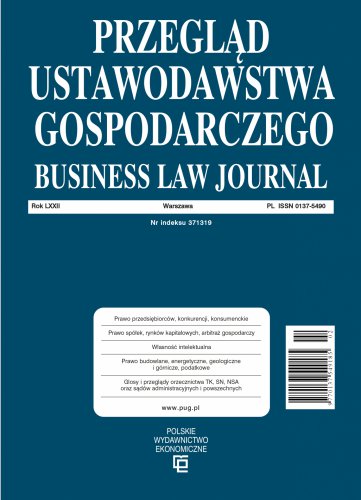Journal of Business Law 6/2020
ISSN: 0137-5490
Pages: 48
Publication date: 2020
Place publication: Warszawa
Binding: paperback
Format: A4
Publication date: 2020
Place publication: Warszawa
Binding: paperback
Format: A4
DOI: 10.33226/0137-5490.2020.6.1
DOI: 10.33226/0137-5490.2020.6.2
DOI: 10.33226/0137-5490.2020.6.3
JEL: K23
DOI: 10.33226/0137-5490.2020.6.4
DOI: 10.33226/0137-5490.2020.6.5
DOI: 10.33226/0137-5490.2020.6.6
| Odbiór osobisty | 0 € |
| Kurier Inpost | 4 € |
| Kurier FedEX | 4 € |
| Inpost Paczkomaty | 4 € |
| Free delivery in Reader's Club | from 47 € |

